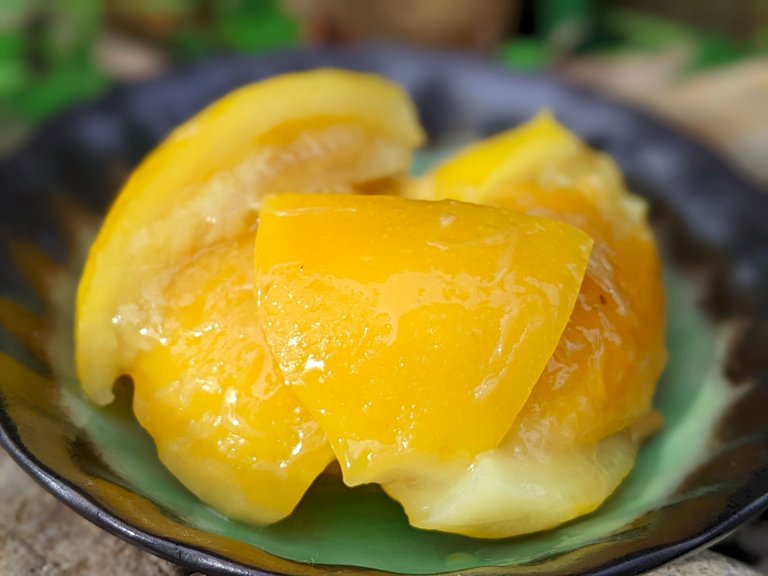
When life gives you lemons make preserved lemons. Preserved lemons are lemons that have been salted and packed into jars, where they ferment for several weeks or months. This process is called lacto-fermentation.
If you are new to fermenting, this is a super easy recipe to start your fermenting journey with. You will only need a clean glass jar, lemons (preferably organic), and sea salt.
While they are nothing new to Middle Eastern cuisine, preserved lemons are now finding their way into the Western kitchen. Though they are considered a delicacy by many, you will be surprised how easy they are to make.
The only thing that is difficult, as with all fermenting projects, is the waiting. From start to finish, preserved lemons take about 4 weeks. If you live in a colder climate than we do, you might have to wait an extra week or two to start enjoying this delicious condiment that's bursting with beneficial bacteria.
What do they taste like? Just as lemon zest they bring a bright and vibrant citrus flavor to your dish, but much better. The slow fermentation breaks down the lemon rind and removes the bitterness, leaving a pleasant, complex, tart, salty citrus flavor.
Although they are well-suited to a variety of dishes, preserved lemons work particularly well in dressings or sauces, Moroccan or Middle Eastern-inspired dishes, and braised or roasted vegetables.
Once you start making them you will get mad at yourself for not starting a new batch earlier. Believe me! We’ve been there.
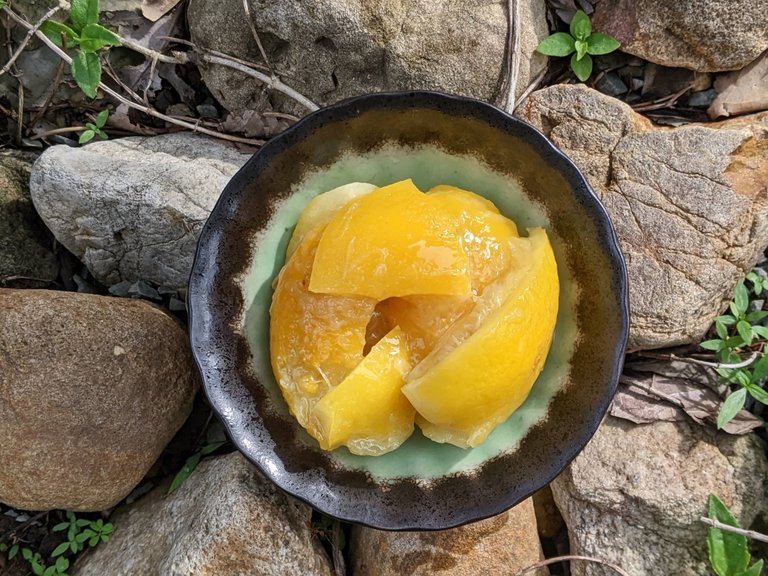
PRESERVED, LACT0-FERMENTED LEMONS
While you can use the whole preserved lemon, it is the rind that is particularly valued by many chefs around the world.
Depending on the volume you are making and the climate you live in, the fermentation process will take about 1 to 2 months. Fermentation of a big jar packed with lemons will take longer, while hotter temperatures will speed up the process.
Fermentation isn’t an exact science. The more you ferment, the easier it will get for you to determine when your ferment is ready. In the case of preserved lemons, they are ready once their rind becomes pliable and loses its bitterness.
Once fermented you can either store them in the fridge or at room temperature for up to one year. The salty, acidic brine created during fermentation acts as an excellent preservative.
If you have a small fridge, just leave them on the counter. Here in the tropics, we prefer to store many things in the fridge. Just because room temperature means around 30C or more for most of the year.
INGREDIENTS
- Lemons, preferably organic
- Sea salt
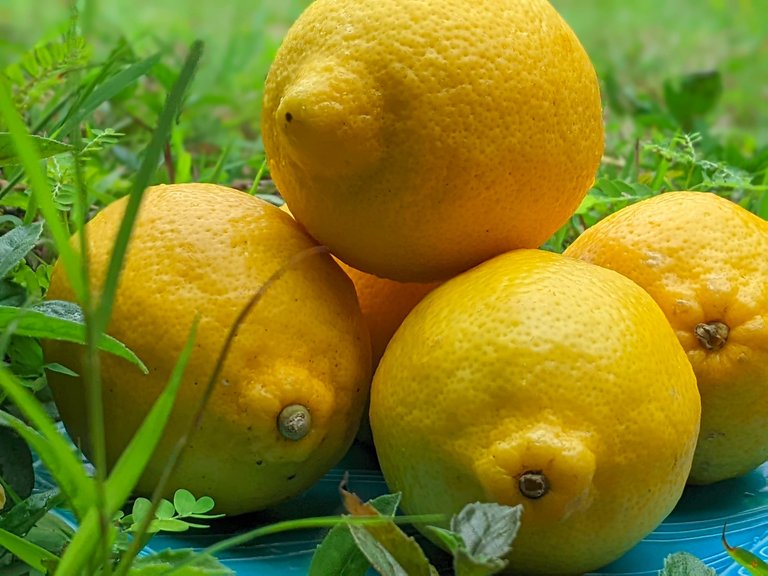
DIRECTIONS
Use organic lemons if you can as you will be eating the rind. Regardless of their origin, thoroughly scrub the lemons to clean them well.
If you didn’t buy organic lemons you might want to give them a pre-soak with vinegar or baking soda to remove any chemicals that might be sprayed onto the lemons. Even though I bought organic lemons, I soaked mine in a vinegar bath for 15 minutes.
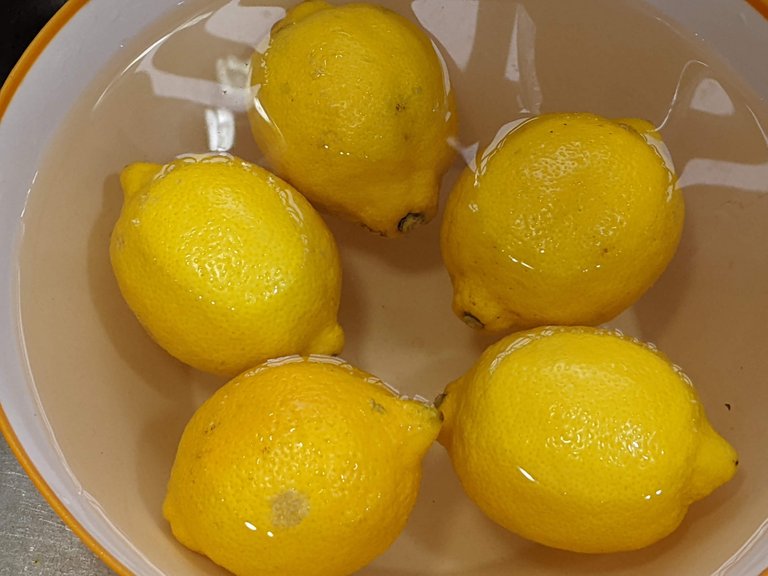
Cut the tips from the lemons without exposing their flesh. The tips can keep their bitterness long after the rest of the lemon is ready for use.
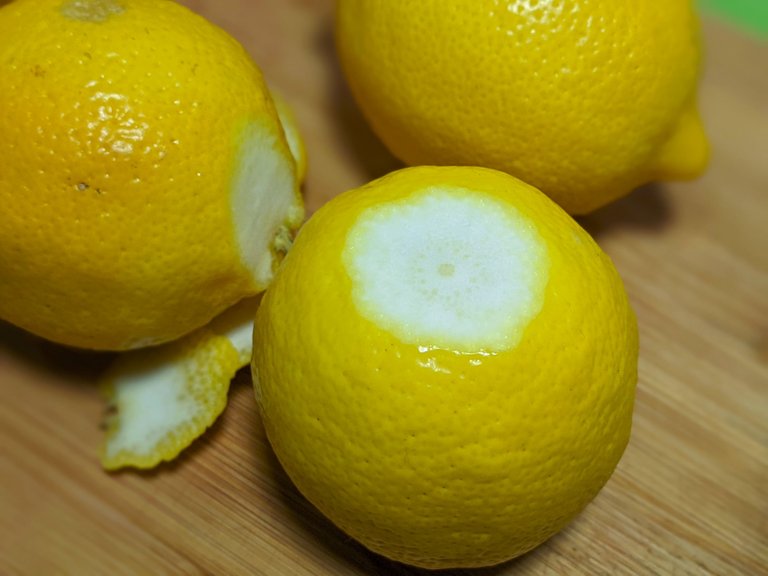
Slice the lemons lengthwise into quarters. DO NOT slice them completely through. Make sure they stay connected at the base, creating a cavity to add the salt.
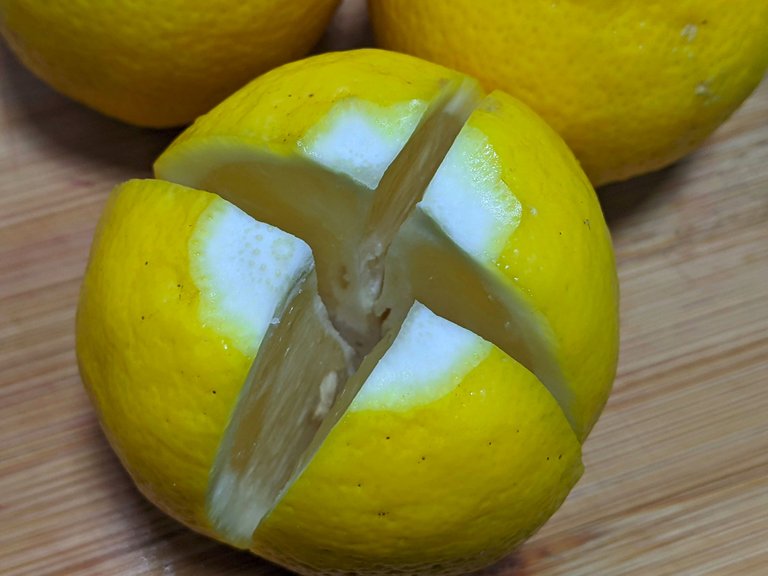
Add a small layer of salt to the bottom of your jar.
Add about a teaspoon of salt into the cavity of each lemon and pack them tightly in a glass jar. Sprinkle each layer of lemons with additional salt.
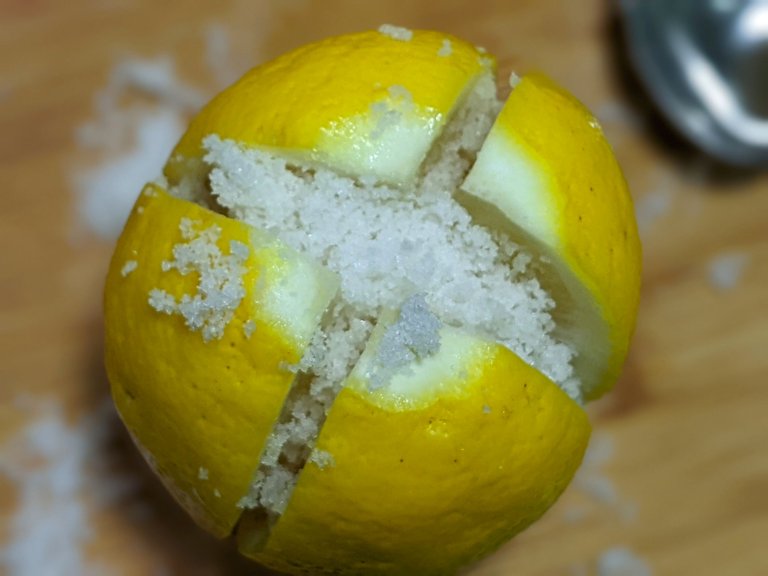
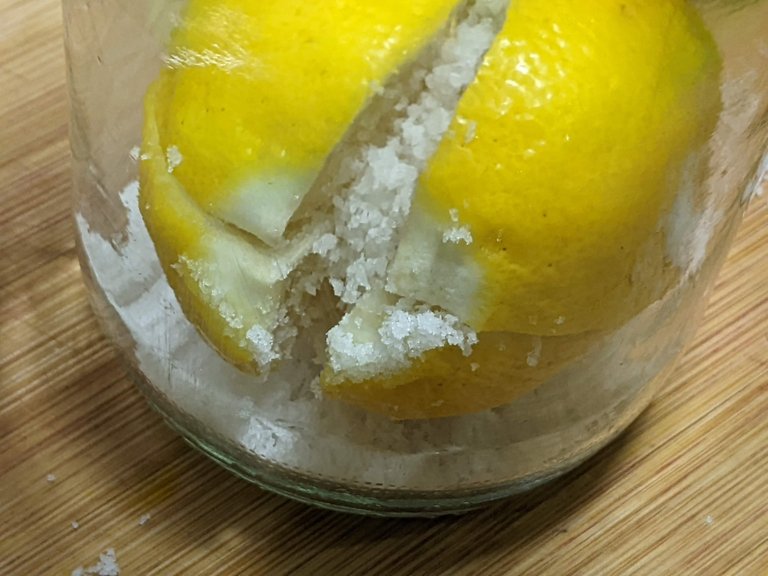
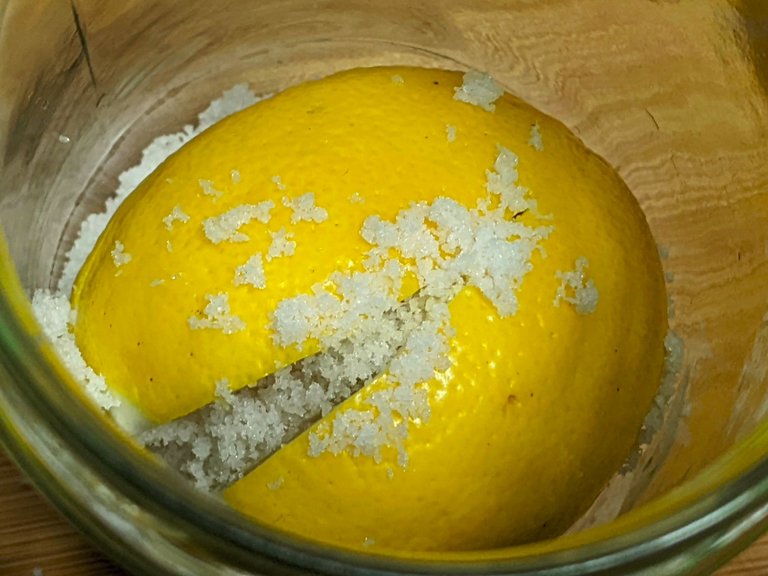
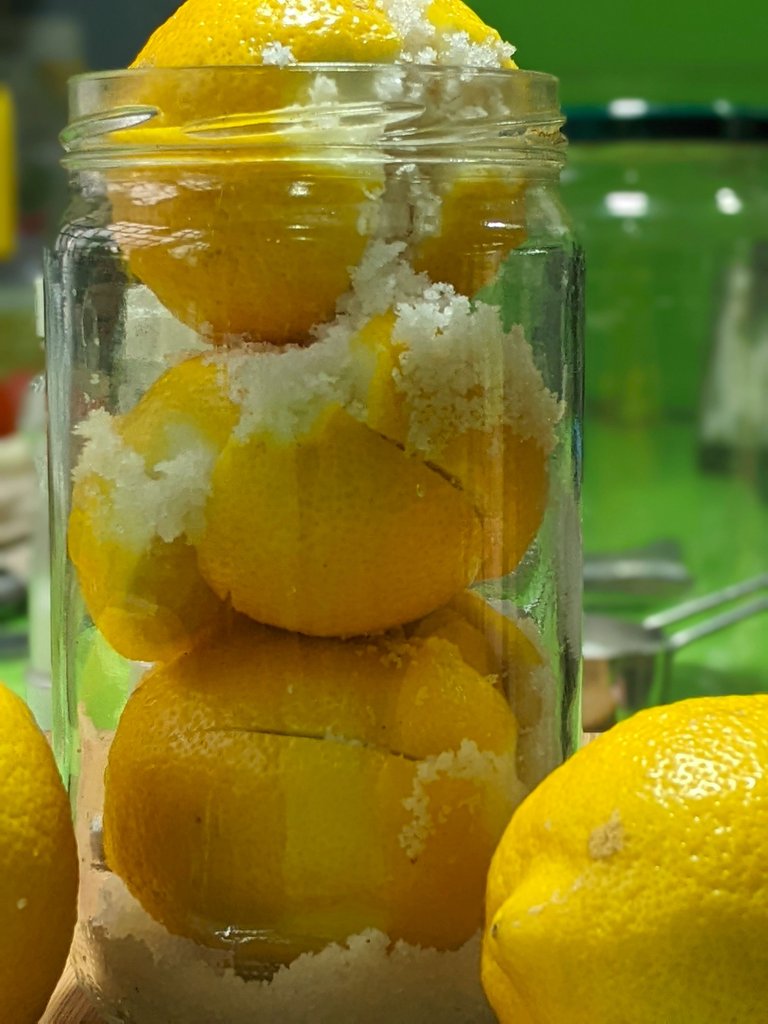
With a pestle or tamper from your blender. Push down the lemons into the jar so that they release their juice. The juice, combined with the salt, will form a brine that completely covers the lemons. If the lemons didn’t release enough juice, squeeze some extra lemon juice and add it to the jar.
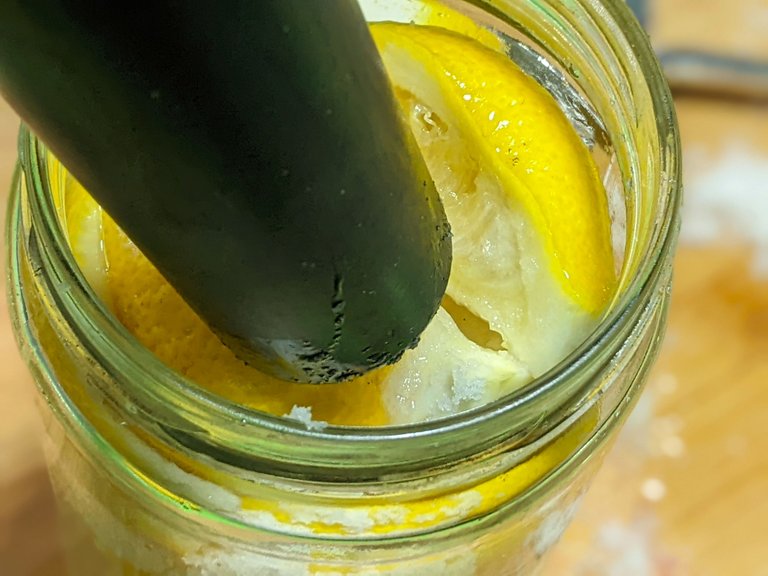
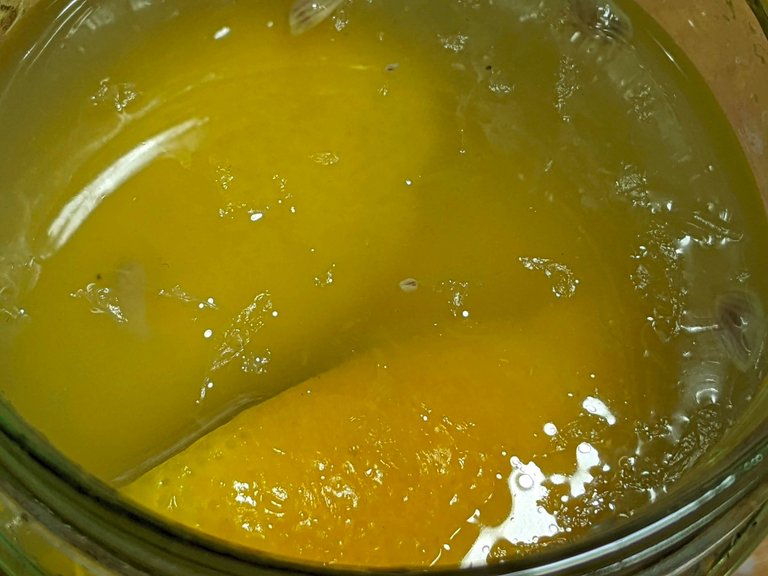
If you have a fermentation weight you can place it on top of the lemons and close the jar. The lemons have the tendency to float back to the top when you push them down. Though it is best if you keep them submerged at all times, if you don’t have fermentation weights, just make sure to check the lemons once or twice a day and push them back under the brine.
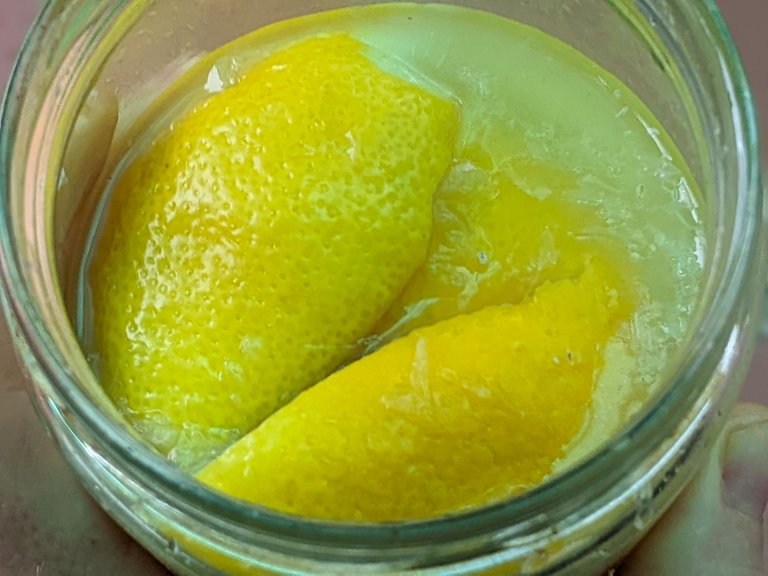
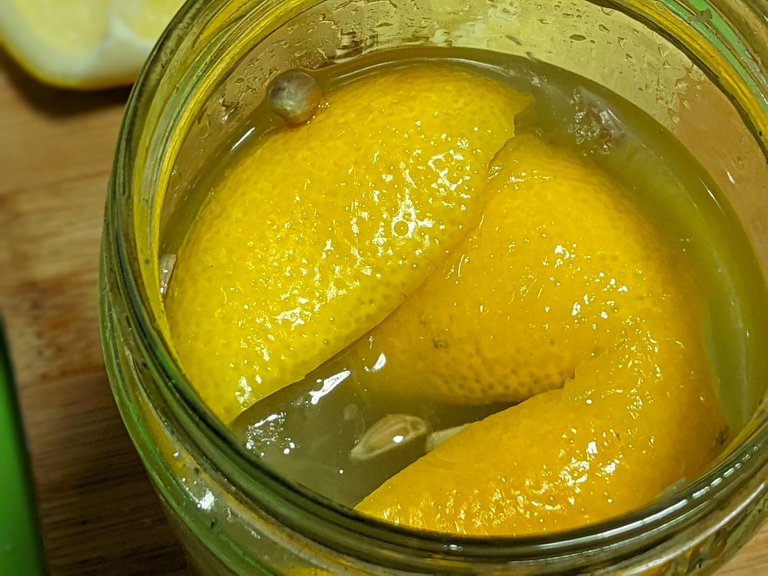
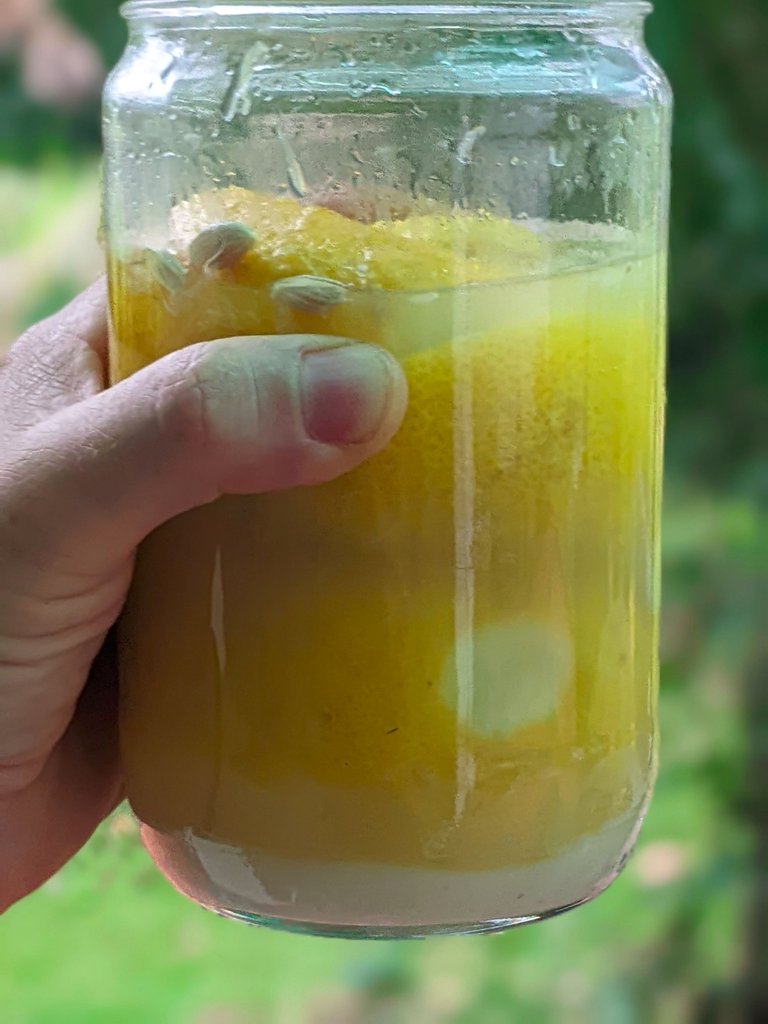
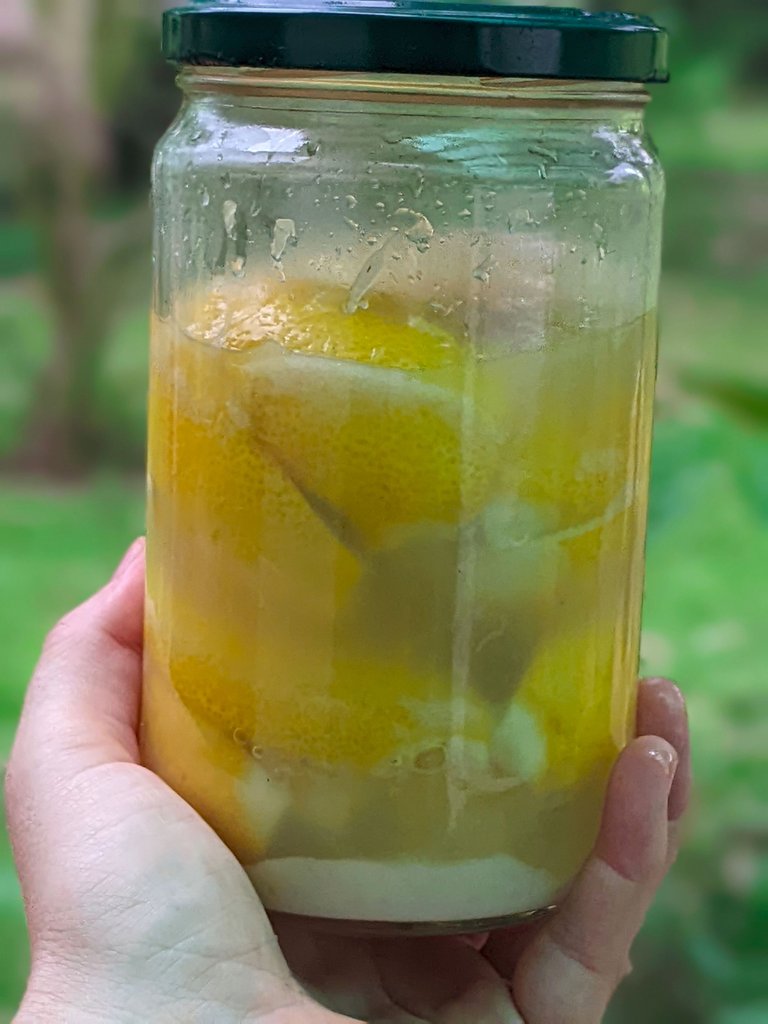
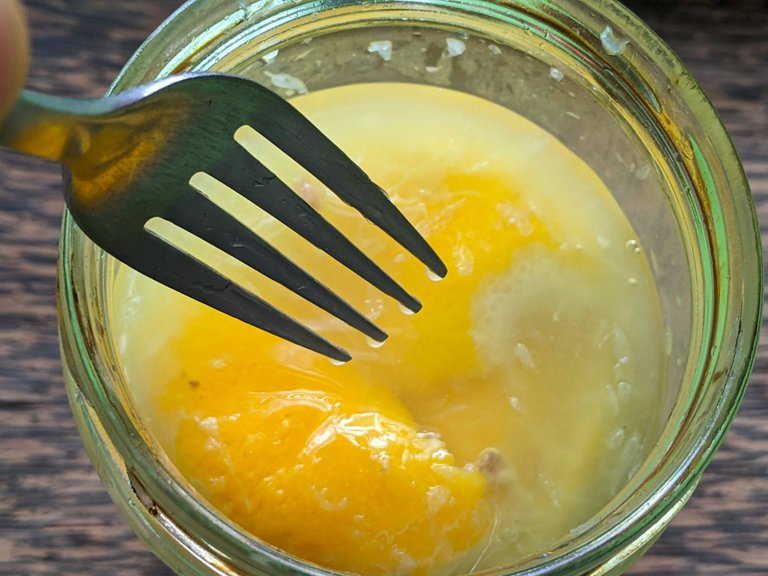
FYI: if you have glass jars with a plastic lid, use plastic as the salt will erode the metal lid. This is not a problem as long as you make sure it doesn't touch the lemons or brine. So make sure to leave enough space between the ferment and the lid.
Allow the lemons to ferment 3 weeks before trying them. Give them a shake once in a while to disperse the juice and salt. The brine will thicken over time. The lemons are ready when the skin has become soft and lost its bitterness.
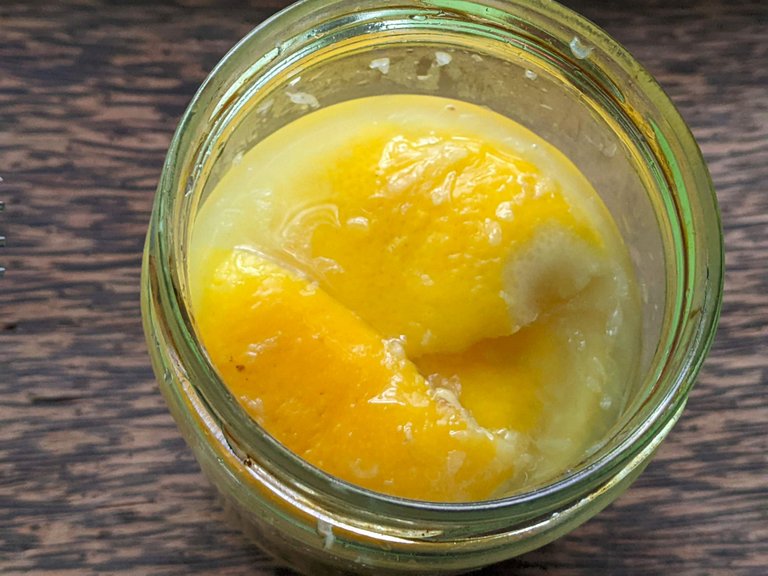
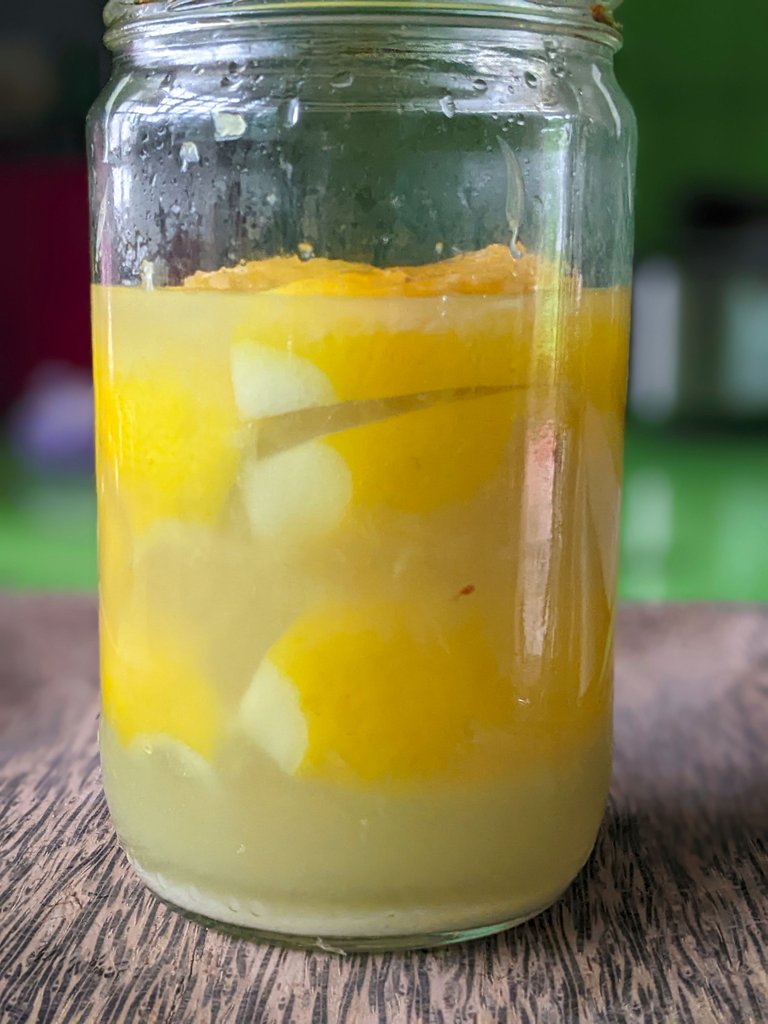
Since I made a small batch this time and we had some hot tropical weather mine were ready after just 3 weeks. If, however, the rind isn’t soft and hasn’t lost its bitterness, ferment a bit longer.
Depending on your climate and the volume you made, fermentation can take as long as 2 months.
TIP:
Though I would recommend not to go all experimental when making your first batch. When you start making them more often you can also add herbs and spices such as cinnamon sticks, chili peppers, bay leaves, peppercorn, etc.
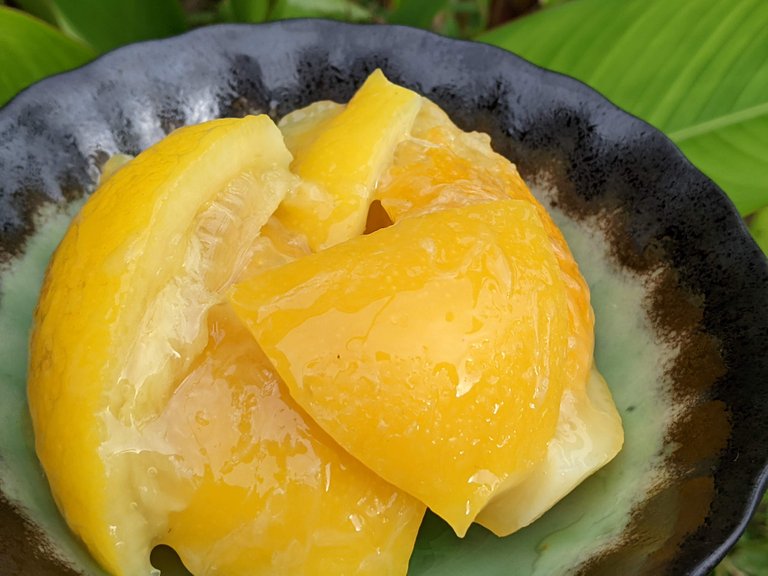
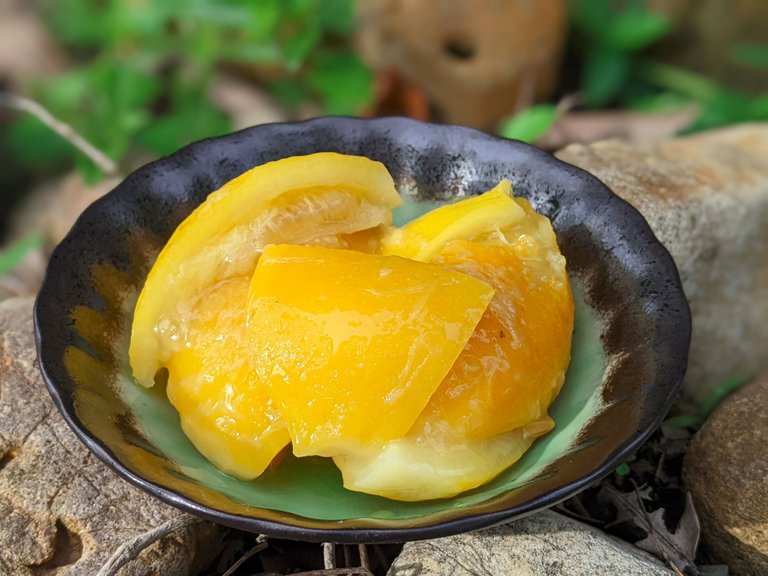
HAPPY FERMENTING!
WISHING YOU ALL A HAPPY AND HEALTHY DAY ღ ღ ღ

ALL CONTENT IS MINE AND ORIGINAL!
PICTURE(s) TAKEN WITH GOOGLE PIXEL 3 XL
LET'S CONNECT!
🥑🍓🍆 FIND MORE YUMMY PLANT-BASED CREATIONS BELOW 🥑🍓🍆
FUSION FOOD - ASIAN-STYLE TACOS WITH HOMEMADE PEANUT TOFU AND KIMCHI
VITAMIN NATURE - WHY YOU SHOULD GET MORE OF IT (+ TRIP TO OMAL WATERFALL)
 You've been curated by
You've been curated by